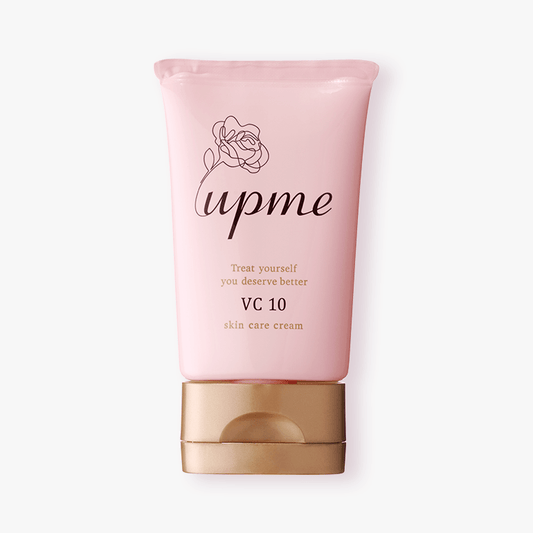
How to wash the delicate zone, what to do and how to properly care for it
Thank you for visiting our website.
Researched and developed by 95 doctors
Contains 10% of our proprietary stable neutral vitamin C derivative
Carefully crafted Femcare brand cream
I'm Sato, a staff member at "up me".

The theme this time is "How to wash delicate areas, bad habits and correct care methods."
Care of the intimate areas is very important for a woman's beauty and health.
In particular, to address the various skin concerns of women in their 30s and 40s, such as dullness and dark spots, it is important to consider using creams containing vitamin C or vitamin C derivatives, as well as to pay attention to daily washing and care methods.
The skin in the delicate area is thinner and more sensitive than other parts of the body, so proper cleansing and skin care methods are essential.
Recently, hair removal in sensitive areas has also become popular, and attention is being paid to the care that follows.
In this article, we will explain in detail how to wash your delicate areas, avoid bad habits, and provide proper care methods.
We combine our expert knowledge with practical advice that can be directly applied to your everyday life.
What is the delicate zone?
The delicate area refers to a woman's VIO line (the bikini line, mons pubis, vulva, and anus).
The skin in this area is thin and constantly humid, making it extremely delicate and prone to damage from friction.
Improper care of the delicate area can cause skin problems such as itching and dullness.
How to wash your delicate areas
1. Wash with the right water temperature
- Lukewarm water is ideal, as hot water weakens the skin's barrier.
2. Choose a mild cleaning agent
- Soaps and body washes with too strong cleansing power can wash away necessary resident bacteria in intimate areas.
Therefore, it is recommended to choose a mild cleanser designed specifically for delicate areas.
3. Wash gently by hand
- It is best to wash gently with your hands as sponges and towels can be too harsh.
4. Focus on cleaning the outside rather than the inside
- Sweat and sebum tend to accumulate in the folds of the vulva, so be sure to wash them thoroughly and carefully.
On the other hand, the vagina has a self-cleaning function, so there is no need to wash it too much.
Bad behavior
- Use of soap
- Alkaline soaps can upset the pH balance of your intimate areas.
- Too much rubbing
- Friction can cause darkening.
It is important to wash gently.
- Using dirty towels
- Drying with dirty towels can cause bacteria to grow and increase the risk of infection.
- Regular use of tight underwear
- Underwear that is not breathable can cause rashes and itching.
Proper care method
1. Moisturize with creams and oils
- Use creams and oils for sensitive areas to keep them moisturized.
In particular, products containing vitamin C derivatives can also be expected to have whitening effects.

2. Treating dull skin
- Choose products that contain Vitamin C and other skin brightening ingredients to specifically target dull skin.
3. Post-hair removal care
- After hair removal, your skin will be sensitive, so it is important to care for it with a cream that contains anti-inflammatory ingredients.
Care products recommended for women in their 30s and 40s
Women of this age are prone to problems in their delicate areas due to changes in hormone balance and a slower rate of skin regeneration.
By choosing care products that contain vitamin C derivatives and moisturizing ingredients, you can expect to prevent and improve various skin problems.

Finally, daily care of your delicate areas is very important.
By following the correct washing and care methods and paying careful attention to the selection of care products, you can keep your delicate areas healthy and trouble-free.


